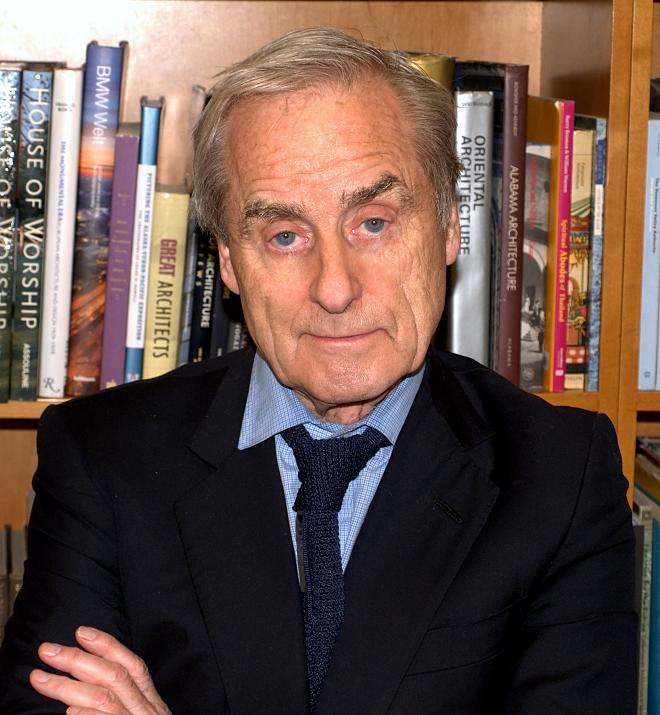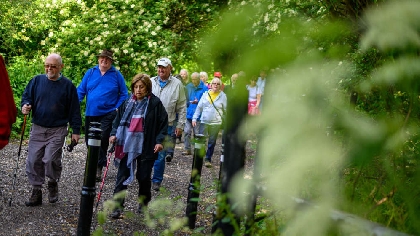
World famous journalist Sir Harold Evans, who began his long, illustrious and award-winning journalism career at the Ashton Reporter, has sadly passed away at the age of 92.
The legendary former Sunday Times and Times editor died of heart failure on Wednesday (23 September) in New York, his wife Tina Brown has said.
Truly one of our area's 'Famesiders', he started his reporting career at the weekly Ashton Reporter newspapers after leaving school at the age of 16, back in 1944 towards the end of the Second World War.
It's a period he remembers with great affection in his book My Paper Chase. It was, he recalled, a paper that "bothered with the little things in people's lives, the whist drives and flower shows".
Back in 2012, he personally messaged current Reporter editor Nigel Skinner to record his delight that the Reporter group had secured its future.
He said: "Where there's news there's hope! Congratulations on the restoration of the vital Reporter group which gave me a start in life I can never forget."
Nigel had kept Sir Harry up to date with developments at the business prior to the cessation of publication, which fortunately was for a limited period only.
Everyone at the Reporter and Chronicle is saddened to hear of Sir Harry's death and expresses sincere condolences to his family and friends.
Tributes have poured in from across the media and newspaper industry to the British-American journalist, whose commitment to investigative reporting while editor of the Sunday Times helped to shape British journalism and 'set the gold standard' during the second half of the 20th century.
A trail-blazing newspaper editor - Sir Harry's career
Born on 28 June 1928, Sir Harold Matthew Evans was born in Eccles in Lancashire to Welsh parents.
After completing his national service in the Royal Air Force, he entered Durham University where he graduated with honours in politics and economics, and subsequently earned a Master of Arts degree for a thesis on foreign policy.
He became an assistant editor of the Manchester Evening News and won a Harkness Fellowship in 1956-57 for travel and study in the United States.
Sir Harry began to gain a reputation on his return from the US when he was appointed editor of the regional daily The Northern Echo, where one of his campaigns resulted in a national programme for the detection of cervical cancer.
During his 14-year tenure as editor of The Sunday Times between 1967 and 1981, Evans was responsible for its crusading style of investigative reporting which brought to public attention many stories and scandals which were officially denied or ignored.
One such report was about the plight of hundreds of British Thalidomide children who had never had any compensation for severe birth defects some had suffered.
This turned into a campaign for the newspaper's Insight investigative team, and Evans himself took on the drug companies responsible for the manufacture of Thalidomide, pursuing them through the English courts and eventually gaining victory in the European Court of Human Rights.
As a result, the victims' families won compensation after more than a decade. Moreover, the British government was compelled to change the law inhibiting the reporting of civil cases.
When Rupert Murdoch acquired Times Newspapers Limited in 1981, Evans was appointed editor of The Times. However, he remained with the paper for only a year, resigning over policy differences relating to editorial independence.
In 1984, Sir Harold wrote an account in a book entitled Good Times, Bad Times in 1984.
On leaving The Times, Evans became director of Goldcrest Films and Television.
Also in 1984, Evans moved to the United States where he taught at Duke University. He was subsequently appointed editor-in-chief of The Atlantic Monthly Press and became editorial director of US News and World Report.
In 1986, he was the founding editor of Conde Nast Traveler, dedicated to 'truth in travel'.
Evans, who became an American citizen in 1993, was appointed editorial director and vice chairman of US News and World Report, the New York Daily News, and The Atlantic Monthly from 1997 to January 2000 when he resigned to concentrate on writing.
His best known work, The American Century, won critical acclaim when it was published in 1998. The sequel, They Made America, in 2004 described the lives of some of the country's most important inventors and innovators.
Fortune identified it as one of the best books in the 75 years of that magazine's publication. It was adapted as a four-part television mini-series that same year and as a National Public Radio special in the USA in 2005.
In 2001, he served as editor-at-large of The Week Magazine and, after being knighted for his services to journalism in 2003, he began to contribute to The Guardian and BBC Radio 4 from 2005.
He was passionate about newspaper journalism to the end, saying in his 2009 memoirs My Paper Chase: "It's endlessly fascinating to me how the tumult of the world can be made comprehensible by the orderly calibration of values within the discipline of the printed page."
Then in 2011, at the age of 82, Sir Harold was appointed editor-at-large at Reuters, the organisation's editor-in-chief describing him as "one of the greatest minds in journalism".
Main image:
Sir Harold Evans pictured in 2009.


 Ashton restaurant threatens to expose dine and dashers after they scarper leaving £159 bill for food and cocktails
Ashton restaurant threatens to expose dine and dashers after they scarper leaving £159 bill for food and cocktails
 Sound of music at The Vale as venue announces new gigs
Sound of music at The Vale as venue announces new gigs
 Mooch and natter in Mossley this May with the 2024 GM Walking Festival
Mooch and natter in Mossley this May with the 2024 GM Walking Festival
 Hyde theatre receives £20K funding boost from the People's Postcode Lottery
Hyde theatre receives £20K funding boost from the People's Postcode Lottery


